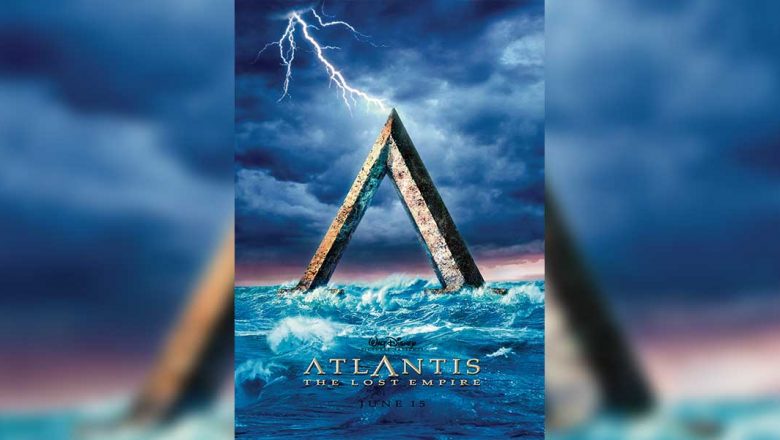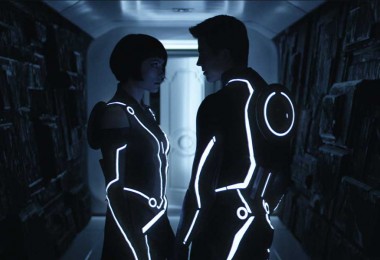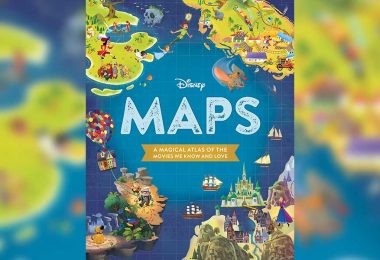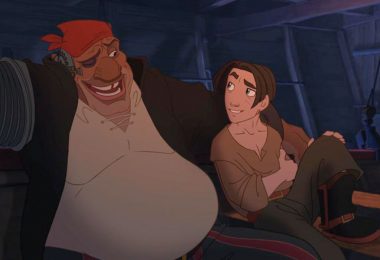By Jocelyn Buhlman
Lost deep in the ocean, Atlantis was once a mighty kingdom but now hidden away, seemingly forever… at least until a brave expedition crew set out on an epic quest that has captured our imaginations for 20 years. Atlantis: The Lost Empire is an animated film like no other, introducing fans to a strange and intricate world where crystals power everything, stone can fly, and adventure is around every corner. To celebrate Atlantis: The Lost Empire’s debut 20 years ago this month, we talked with legendary producer Don Hahn (who produced the film, along with Disney classics like Beauty and the Beast, The Little Mermaid, and last year’s Adventure Thru the Walt Disney Archives documentary) about the film’s lasting legacy, behind-the-scenes details, and just how this epic quest for Atlantis began.
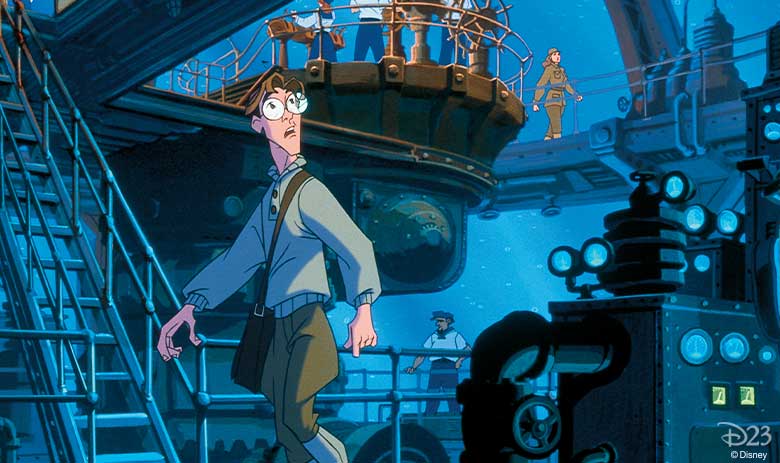
It Started with the Dream of Making Something Different
After producing a slate of now-classic fantasy films, including The Little Mermaid and Beauty and the Beast, Hahn and the Atlantis: The Lost Empire team had their eyes set on a different genre: “It’s not a princess movie,” he explains, “We always said we were going to go to the end of Main Street and turn left to go have an adventure! And that’s exactly what it is.” The idea—walking into a cinematic Adventureland, instead of Fantasyland, led the team to a fateful lunch where the concept was born: “We sat down at a Mexican restaurant, famously, and talked about what would be next. We kept coming back to adventure ideas, like Journey to the Center of the Earth, and all those movies from our childhood.”
Just developing the film was a journey into uncharted territory—they wanted to create an ensemble adventure, different from their past, successful films. But not just that—”We also didn’t want to make a musical,” Hahn recalls, “and we love musicals. We’ve made Beauty and the Beast and The Lion King and all those movies that we’re very, very proud of. So, it’s not that we wanted to leave that behind—but you do want to try something different again and have another chapter, you know? And so that’s how it hatched.”
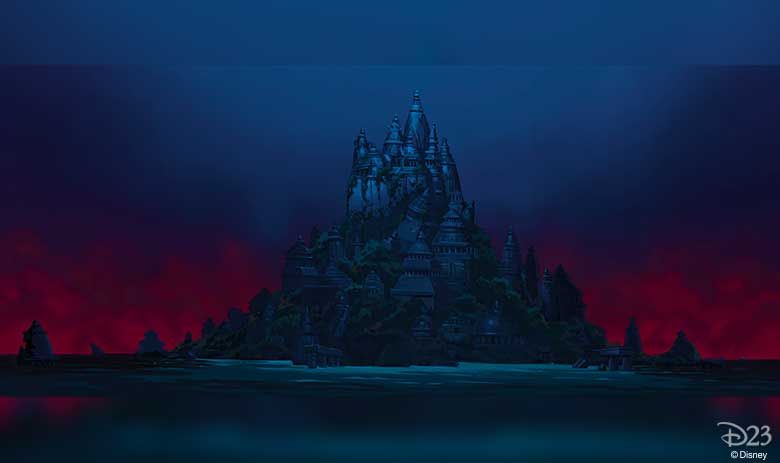
Atlantis: The Lost Empire Took Inspiration from Walt’s Live Action Films
While Atlantis: The Lost Empire was a departure from Walt Disney Animation Studios’ roster of films at the time, the idea of a thrilling adventure to a mythical land isn’t new to Disney movies. Movies such as Treasure Island, which Hahn calls “Walt’s first adventure movie,” were full of swashbuckling characters and mysterious lands full of unknown treasure.
“Island at the Top of the World reminds me a lot of Atlantis: The Lost Empire, with characters setting off in a giant dirigible,” Hahn explains, “And 20,000 Leagues Under the Sea was maybe the single most influential movie because it’s a similar story: You set off in a submarine to find of this lost island of Captain Nemo’s and this huge adventure ensues.” The adventure genre had been explored in live-action, but now it was up to their team to bring the genre to an animated film.
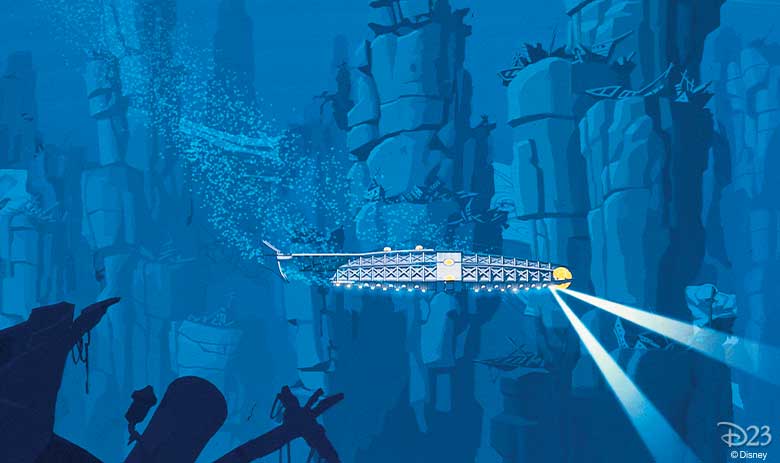
They Went on Real-Life Adventures Before Making the Movie
Sure, the team couldn’t exactly board a submarine and visit Atlantis themselves, but that didn’t stop them from going on their own adventures to get inspiration for the film. As the movie is set in the early 1900s, the team needed to make sure that they accurately captured what the real world was like back then. Hahn recalls, “We went to the Smithsonian and studied the vehicles of that era. We went to the army museum where [we studied] all the tanks restored from that era. It was fascinating studying everything from weaponry to costumes and languages. We wanted to know what kinds of equipment the team might have. What would Mrs. Packard be talking into? What kind of armaments might they have?”
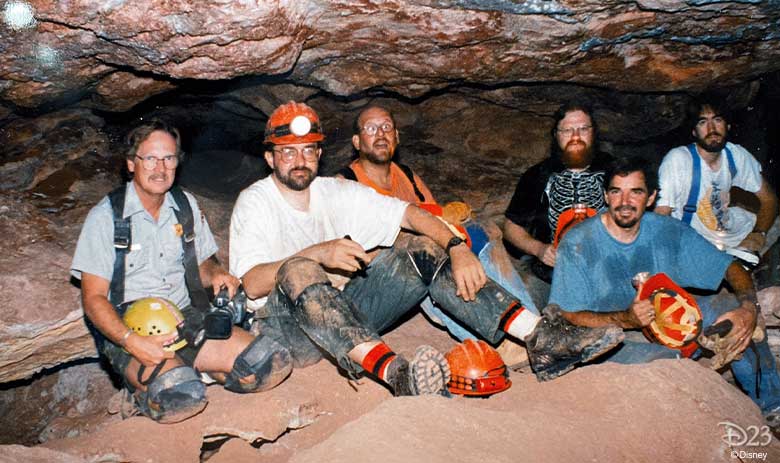
The Atlantis: The Lost Empire team visits Carlsbad Caverns (Image courtesy of Don Hahn)
Of course, while Atlantis isn’t readily available for vacationing, there are some amazing natural wonders around the world that the team used for inspiration, such as Carlsbad Caverns in New Mexico. Putting themselves in the shoes of explorers helped the team realize the scope of the environments they’d be creating. “You go down there and you find out the caves are huge! There are huge places underground,” Hahn recalls, “And so that made it plausible that we could set our movie there.”
The caverns weren’t the only inspiration for the otherworldly feel for Atlantis. The team studied the myths of Atlantis, but also developed their own mythos. “You can go to a chaplain village, you can go to a Victorian street scene. You can go to a medieval Paris. And we did, we, I mean, we crawled up in Notre Dame,” Hahn explains, of research for previous film such as The Hunchback of Notre Dame, “Half the movie [Atlantis: The Lost Empire] was really easy to research, on the 1900s side. The Atlantean side really was looking at cultures that grew out of nature. Imagine a society being based on crystal and metaphysical phenomenon and then being buried in the center of the earth for thousands of years. We tried to figure out what that might look like. What a great, fun challenge to say Atlantis can be anything. You take all the research you can find, and then you mush it together into something that makes it plausible. Walt Disney used to call it the ‘plausible impossible.’”
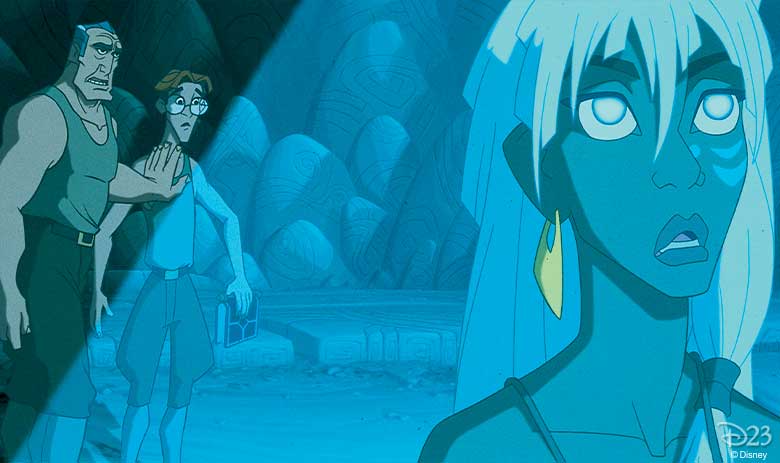
The Artistic Style Took Inspiration from Comic Books
The striking visual style of Atlantis: The Lost Empire comes from many sources—Hahn cites German poster artists, for example, as an influence on the film’s unique look—but much of the visual development was inspired by the bold and angular style of comic books. The team wanted the film’s visual style to reflect its action-packed plot, and to achieve that, they called on the skills of Mike Mignola, the creator of the Hellboy comics. “Boy is he gifted—and his ideas are so rich,” Hahn explains. “He was a real leg up for us, bringing in some special points of view.” Mignola’s work as Production Designer on Atlantis: The Lost Empire is evident by much of the otherworldly elements of Atlantis: The Lost Empire. Hahn recalls, “Mansions, the fish Atlanteans rode on, the lightning bolts they shot out of their eyes, the staffs they carried—a lot of that came from Mike.”
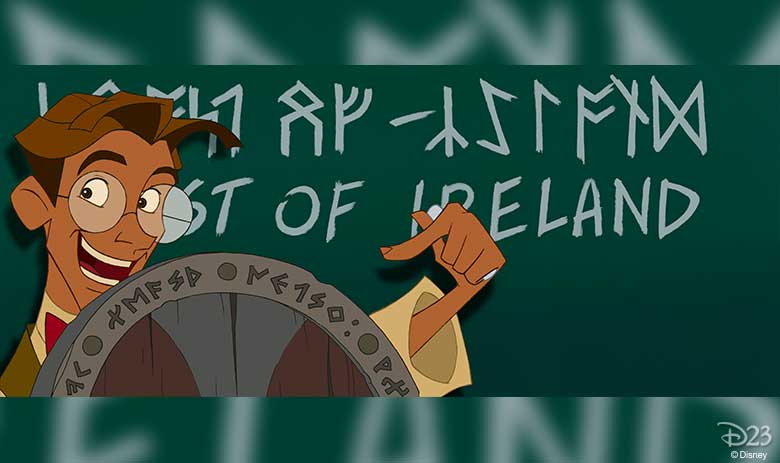
They Had to Create an Entirely New Language for the Film
One of the key plot points of the film that sets Milo Thatch out on his adventure with an ensemble of explorers is his understanding of the Atlantean language. Much like the overall look and culture of the lost city of Atlantis, the language in which Milo is oh-so-proficient had to be created from scratch. “We wanted to do a language that looks not just made-up, but something that really felt rooted in real language,” Hahn explains. “What made some sense for Atlantis was that the language is based somewhat on Icelandic, which is kind of an ancient Viking language. If you want to know what old Nordic sounds like, it’s very much like Icelandic. We figured that a lot of the Shepherd’s Journal and a lot of the genesis of this story happened in that old Nordic world when Vikings were reaching out and exploring around the world.”
The language was developed by linguist Marc Okrand, best known for his out-of-this-world languages created for the Star Trek universe, but the look of the Atlantean alphabet was designed by visual development artist John Emerson. Hahn recalls the process of picking the letters of the language was very simple. “We’d say, ‘So let’s make that A, and let’s make this a bit of a treasure map and that’ll be a U that’ll be a T’—and came up with the alphabet.”
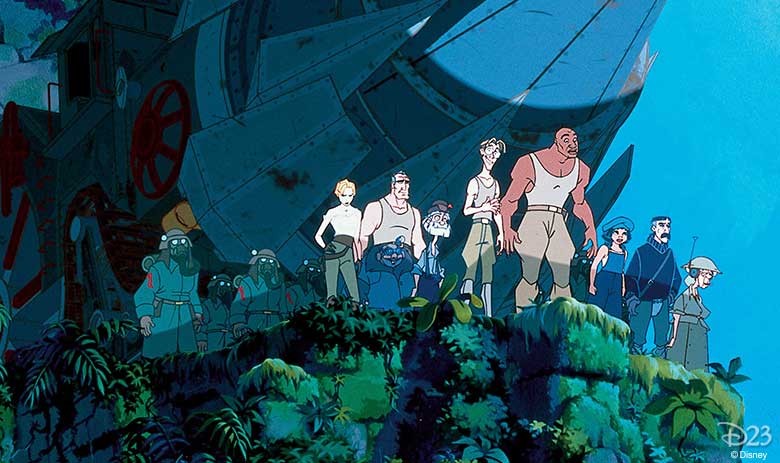
There Was Almost an Extra Member on the Atlantis: The Lost Empire Crew
The film was always envisioned to feature an ensemble cast, but originally, there was an additional, magical member on the expedition crew. Hahn recalls, “We loved the ‘team of experts’ idea, so that kind of started to hatch a lot of ideas, but not all the crew members made it. We had, for example, a magician—I think his name was Zolton—and he was so cool and we had all this artwork, but there wasn’t quite anything for him to do along the way.”
While we’ll never know the true coolness of Zolton, removing the character helped the rest of the expedition team develop. Hahn explains, “If you have magic, you could do anything. So, you can say, ‘Let’s move this huge rock out of the way,’ or whatever. So, it’s more practical not to have a character like that. But out of that came Vinny, the explosives expert, and Mrs. Packard, the communications expert.”
The Lost Empire Lives On
Since Disney fans around the world discovered Atlantis: The Lost Empire, the movie has developed a following that’s persisted 20 years later—no treasure maps needed to find them! “It’s surprising in the most delightful way,” Hahn says, “because we were all really proud of it at the box office, and then, you know, you move on to the next movie.” But while Hahn and the Atlantis: The Lost Empire crew continued to make movie magic, fans found each other through another uncharted territory—the Internet! “About two or three years ago,” Hahn recalls, “the writers started saying, ‘Hey, there’s a group online. It has like 20,000 members that are super Atlantis fans.’ And we love them. They’re so articulate—they understand the movie so much and they loved the movie so much. We’re grateful, I think is the word for it. Humbled and grateful.”
Explore the mysteries of Atlantis for yourself by streaming Atlantis: The Lost Empire on Disney+.


